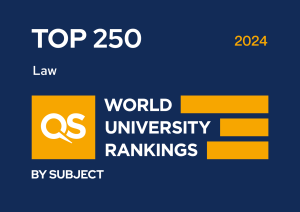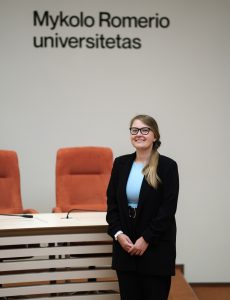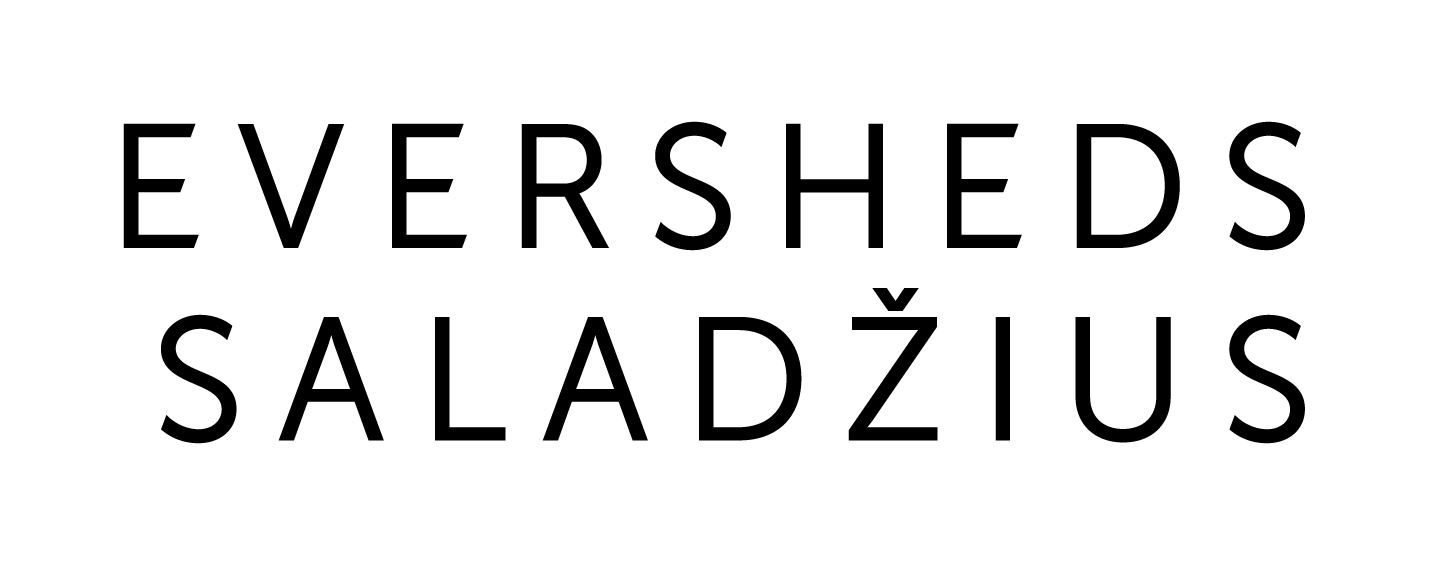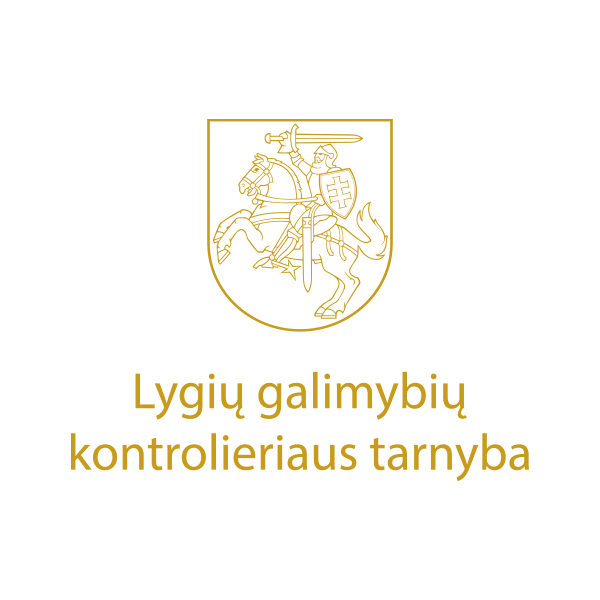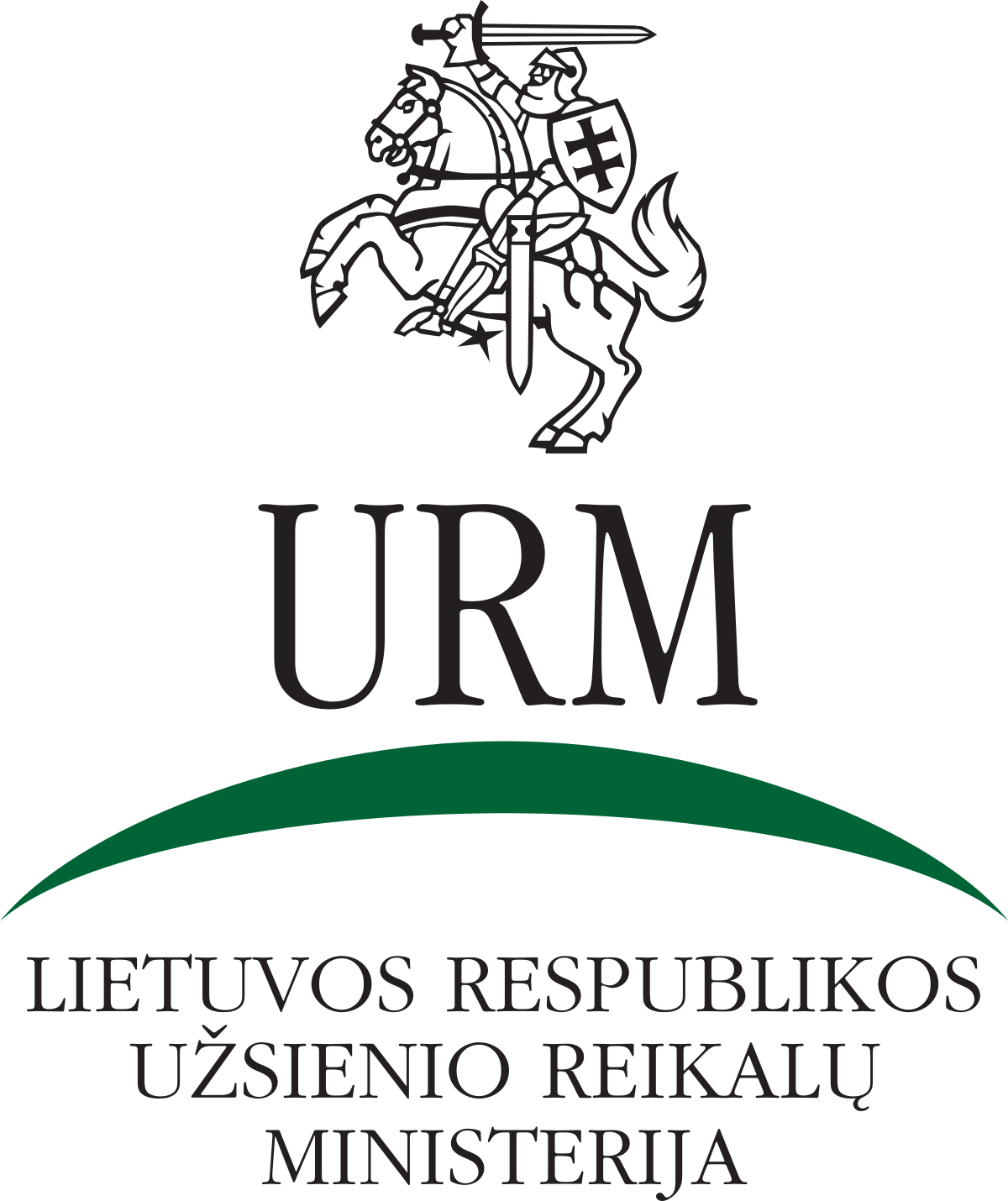|
1. Delivered in English |
 |
This programme is delivered in English. It attracts students from multiple jurisdictions. Teamwork is encouraged and students collaborate on multiple projects. |
| 2. Focussed on preparing people for careers |   |
One of the university’s core values is employability. The university has an excellent employability record (over 80%). The careers service play an active role in helping students. Guest speakers come in to share their experiences. Modules, such as International Human Rights Litigation, focus on practical skills, such as how to prepare and present cases, and advocacy. |
| 3. Case-study based experiential learning |  |
The programme recognises that students want to be prepared for the world of work. That’s why it makes use of real-life case-studies. Students are immersed and play roles in those case studies and apply legal and other skills, such as case analysis and research. |
| 4. Looks at contemporary themes |  |
The prorgramme has been specifically designed to focus on matters of contemporary international concern, including climate change, conflict and economic uncertainty. These form the basis of case studies. |
| 5. Study abroad options available through Erasmus+ and Nordplus mobility network |  |
The university believes in providing students with the opportunity to go abroad. It is a member of many international networks, such as the Erasmus+ and Nordplus mobility networks, and these assist students who want to do part of their studies overseas. Students on the programme are encouraged to do the second semester abroad. |
|
6. Covers oft skills such as creative thinking, strategy and leadership |
 |
All employers increasingly expect graduates to have soft skills, such as creative problem solving, strategic communication, teamworking and leadership. We have embedded these by design in to the programme through experiential and other forms of learning. This is part of the Law School’s work in preparing students for a quality life. Students are assessed on soft skills. |
|
7. Expert tutors |
 |
Our programme leaders are experts in their field. Many have held judicial or other high offices, and they are all active research leaders. We believe it is crucial that students should benefit from their experience, and they all take an active role in encouraging and supporting students. |
|
8. Strong employability |
 |
Lots of the students on the programme have gone onto employment in international law, including in human rights, aviation law and dispute resolution. They form part of a vibrant and active alumni network and often come back to give talks and mentorship as well. |
| 9. Law School is recognised as the number 1 Law School |  |
We are very proud of our awards. We have a strong international reputation. Everyone plays a key part in this. The Law School was recognised as the best Law School in Lithuania by the “QS World University Rankings by Subject 2024”, for the 5th time in a row. |
|
10. Strong research focus |
 |
All of our course leaders are a part of the Innovation Labs. The Labs conduct cutting edge research, for example, in access to justice, international human rights law and cyber security. They are also part of regional and international networks, and have published internationally, The Law School has participated in many internationally funded projects that have pushed the boundaries of disciplines, such as EU and other internationally funded research. |
Apply Now to start your journey on this programme.
STUDY PROGRAMME PLAN
|
Course units |
ECTS credits |
|
1st YEAR |
60 |
|
1 SEMESTER |
30 |
|
Compulsory course units |
24 |
|
Problems of International Protection of Human Rights |
6 |
|
Refugee Law |
6 |
|
International Humanitarian Law |
6 |
|
Research methodology and new technologies |
6 |
|
Alternatively elective course units 1 |
6 |
|
Diplomatic and Consular Law |
6 |
|
Private International Law and Sustainability |
6 |
|
2 SEMESTER |
30 |
|
Compulsory course units |
24 |
|
International Law of Treaties |
6 |
|
Litigation at the European Court of Human Rights |
6 |
|
Master Thesis Project |
3 |
|
International Law of the Sea |
3 |
|
Privacy and Data Protection |
6 |
|
Alternatively elective course units 2 |
6 |
|
Compliance and compliance risks management |
6 |
|
International Aviation Law |
6 |
|
2nd YEAR |
30 |
|
3 SEMESTER |
30 |
|
Compulsory course units |
27 |
|
International Dispute Settlement |
6 |
|
International Investment Law |
3 |
|
International law conferences |
3 |
|
Master Thesis |
15 |
|
Alternatively elective course units 3 |
3 |
|
Law of International Organizations |
3 |
|
Private International Law and Blockchain Technologies |
3 |
General competences and learning outcomes
- Personal abilities and social abilities
- Ability to independently analyse international legal documents and complex practical situations, identify and describe possible problems related to international legal norms creation, interpretation and application, as well as propose motivated legal solutions to these problems or situations and their prevention;
- Ability to work in a team, plan complex activities, comprising various interconnected international legal problems and issues, effectively collaborate with colleagues and clients;
- Ability to make well-grounded, logical conclusions summarising and applying information generated from various international legal sources;
- Ability to clearly and unambiguously advise and familiarise with international law, its regulation and international legal situation the stakeholders who do not have specific international law knowledge.
Subject specific competences and learning outcomes
- Knowledge and its application
- Ability to apply international law knowledge, legal norms and international judicial, arbitration and administrative decisions/jurisprudence to concrete situations with a view of resolving international legal problems in new or unfamiliar context or broader (multidisciplinary) context related to study area, as well as applying legal norms in a way that safeguard the human rights, environment and friendly relations among states;
- Ability to apply acquired knowledge and skills in representing the state in international or European institutions, implementing international projects, and/or assigned tasks in a practical (work related) environment in a foreign country.
- Research skills
- Ability to identify the problems of international legal research and research hypothesis, verify it, determine concrete and practically attainable research objectives and tasks, as well as to achieve them in the course of research;
- Ability to search for information necessary for research, segregate relevant information from a variety of sources, synthesize and summarise it with a view of reaching the research objectives and tasks and verifying research hypothesis;
- Ability to make independent decisions, oriented to regulation and improvement of international legal relations, including the drafting of international legal documents and that of national legal acts, implementing international legal regulation.
- Special abilities
- Ability to resolve certain practical complex legal situations that may arise in international relations through application of knowledge acquired during studies and individual work, international legal documents and national legal acts;
- Ability to independently determine the nature of international legal situations and/or disputes between international law subjects;
- Ability to independently determined and propose the means and ways for legal regulation/resolution of international disputes, which best responds to the situation and expectations of the parties to a dispute;
- Ability to clearly and unambiguously deliver logical, knowledge-based expert conclusions to specialist and non-specialist audiences while evaluating international legal document, another international legal source or the national legislation in the context of international legal regulation;
- Ability to integrate knowledge of various international law sub-branches and other branches of law and resolve complex international law problems (in a court or legal practice contexts) by proposing ethically and socially responsible (including human rights’ orientation) decisions based on international and national law.
Full-time studies in English are 1.5 years long and are organized on weekdays.
- Choose a study programme
- Fill in the application form at apply.mruni.eu
- Pay the non-refundable application fee (for non-EU citizens – 100 euros, for EU-citizens, MRU alumni, and Ukrainians – 50 euros)
- Receive your application evaluation results
- Confirm your acceptance by paying the first-year tuition fee and 50 euros registration fee (non-refundable)
- Sign the study contract
- Start Temporary Residence Permit application procedure
- Register to studies
Required documents:
- Bachelor degree or equivalent first university degree diploma in Law (3-year study duration minimum)
- Academic transcripts of each study year
- Document proving English language level
- Motivational letter (please note that the authenticity of the motivation letter will be verified using specialized software, so it should be written without AI assistance)
- Passport copy
Additional educational documents might be required depending on the country of residence.
Provided documents must be in color, have no cut corners (high quality scan).
Notes:
- The minimum 60% of maximum possible GPA is required in order to be considered for admission.
- By submitting the documents applicant agrees for one’s information to be shared with other institutions that the University might refer to while processing the academic verification.
- Applicants might be asked to participate in additional knowledge evaluation.
Required level – B2
Assessments of English language proficiency certificates equivalent to level B2:
- TOEFL IBT 72-94
- IELTS 5.5-6.5
- PTE score 59-75
- DUOLINGO 100-125
If you do not have a certificate proving your English language proficiency level, you can take the University Online English language level test. You will be able to choose this option while filling in the application. The test is free of charge.
Certificate is not required if your native language is English or if your previous studies were conducted fully in English language.
- If the original educational documents/transcripts are in English, Lithuanian or Russian with an apostille (if required) on the scanned original, no translation needed.
- If original educational documents/transcripts are not in English, Lithuanian or Russian languages, then they have to be supplemented with an official translation.
- The official translation has to be confirmed with the sworn translator’s signature or official notarization.
- Accepted students shall present their original educational documents/transcripts to the International Office upon arrival to begin their studies.
Country Specific Requirements can be found here.
Recognition of Foreign Qualifications
- The evaluation and recognition of prior qualifications is a part of Mykolas Romeris University (MRU) admissions process.
- By submitting the online application you confirm that the documents are legitimate and that MRU can verify the authenticity of the documents by contacting its issuing authority and national ENIC/NARIC centre.
- Documents uploaded must be in good condition and in full colour. Documents issued in languages other than English, Russian, or Lithuanian must be accompanied with an official translation into English or Lithuanian.
- Before you apply make sure that you have a complete documentation package and that your qualifications are giving access to higher education according to the study programme level you are applying for at the MRU.
Recognition Criteria
- The purpose of an assessment is to compare a foreign qualification with a similar level qualification awarded in Lithuania according to quality, profile, content, workloads and learning outcomes.
- Your qualification will be assessed according to specific requirements for the programme you are applying for and whether your academic results are sufficient for studies at the MRU.
Right to Appeal
Recognition decisions can be appealed against to the Academic Recognition of Foreign Qualifications Concerning Higher Education Appeal Committee under the Lithuanian Ministry of Education and Science.
All appeals with supporting documents must be submitted to:
Centre for Quality Assessment in Higher Education
Ph.: +37052104778
Email: recognition@skvc.lt
Address: SKVC, A. Goštauto st. 12, LT-01108, Vilnius, Lithuania
The procedure of evaluation and recognition of academic qualifications
Application fee (non-refundable):
- for Non-EU citizens – €100
- for EU citizens, MRU Alumni, and Ukrainians – €50
Registration fee (non-refundable):
- €50
Tuition fee (EU/Non-EU citizens) per 1 academic year: €4606 per one academic year (2025-2026).
Payment information will be provided in the invoices issued in your online application form.
Student continues to pay the same tuition fee which was implied at the time of the admission.
What qualification will I get at the end of this programme?
You will receive an internationally recognised Master in Law degree in International Law.
Where is this programme taught?
This programme is provided by the Law School at Mykolas Romeris University. The university is based in the capital of Lithuania, Vilnius. The country has a prominent position in the European Union. The university was voted the best university in Lithuania by students in 2020. It has a rich heritage in preparing students to be leaders. It carries the name of Mykolas Romeris, a patriarch and one of the pioneers of the Lithuanian constitutional law between World Wars and an ad hoc international judge The university has carried on this strong tradition with a focus on innovation. The University has a solid support structure. The Law School is recognised as the number 1 Law School in the country by the ‘QS World University Rankings by Subject 2022’. It has a very good research ethos and actively encourages interdisciplinary and innovative research in international law though student engagement in Labs work.
How is the programme structured?
The programme is delivered in English. It is a full-time programme, over 1.5 years, and is 90 ECTS credits. In the first semester, all students study International Human Rights Litigation and Dispute Settlement in Private International Law. They also have a selection of Public International Law and Private International modules enabling them to specialise in one of these fields. In the second semester, there are further Public International Law and Private International modules for them to specialise, however, students are encouraged to go abroad under one of the university’s mobility programmes to our network of partner universities and organisations for international internships. In the first semester of the second year, students work on a thesis.
What is the purpose of the programme?
The purpose of the study programme is to prepare international law specialists. This includes representing and defending the rights and interests of states, international organizations, international companies, and private persons in the international arena. Students who successfully complete this programme will be able to demonstrate knowledge and legal and soft skills, such as conceptual thinking, case analysis, legal research and teamwork. The program has been designed to respond to the challenges of globalization, particularly as they apply to national systems, organisations and private individuals.
What are the admission requirements?
Admission on the programme requires a Bachelor degree in the field of Law plus a good knowledge of professional English (at least B2 level).
How is the programme delivered?
The programme is delivered using experiential teaching methods. Many real-life scenarios are used in which students can apply the legal skills that they have learnt, including legal research, legal writing, legal reasoning and advocacy. Students receive lots of support and feedback during the programme. There is also a strong emphasis on soft skills, such as creative problem solving, strategic thinking, group work and leadership. This is because the Law School has a value to also prepare students for a quality life.
Who teaches the programme?
The programme is delivered by leading practitioners and experts, including former international and constitutional judges. They are all leaders in their field and have contributed to research across the world. They all support students with their career development and provide other forms of support.
What career can I go into with the programme?
The aim is to prepare students for the future, including for working at international institutions, state departments, diplomatic missions, international law firms, international businesses and non-governmental organisations. However, the skills on this course are transferable and globally desired.
How can I apply to the programme?
Applications are accepted at apply.mruni.eu.
E-mail: study@mruni.eu
Phone: +370 5 271 4700
WhatsApp: +370 6 564 6682
Office: I-122
